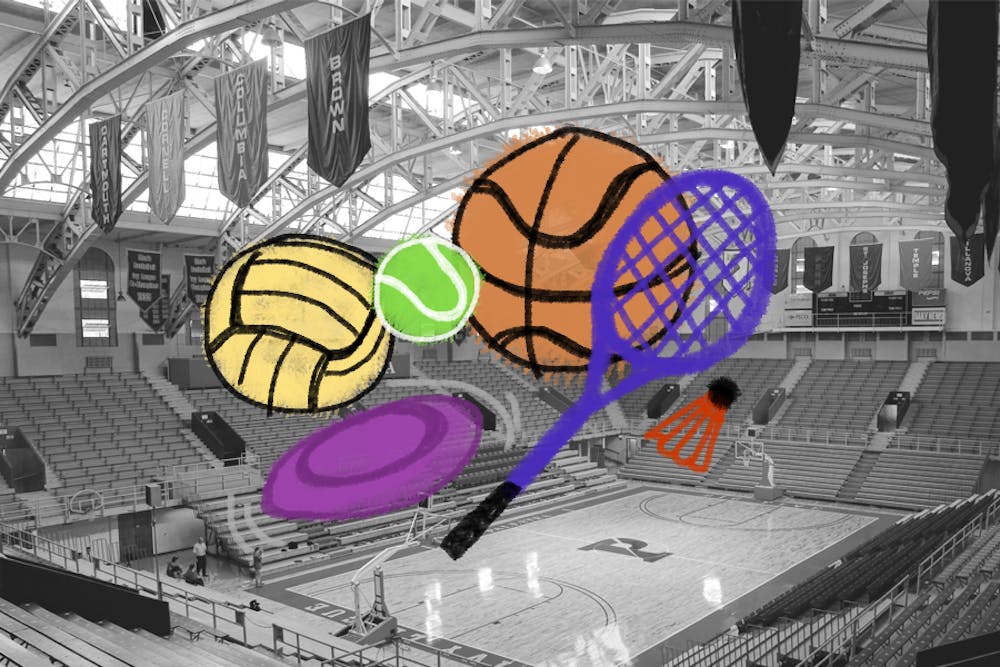A sweltering early–September morning found me weakly trailing a dozen first years along the Schuylkill River. The undertaking: a run to the Philadelphia Art Museum with Penn club swim (though, at my pace, I’m not entirely sure I was even running). While the strides of my tired legs and the sweat on my brow linger in my mind like a fever dream, the camaraderie I found that day continues to follow me down Locust, to the pool, and across state lines to competitions.
For some, joining club sports means the opportunity to maintain a past relationship with a sport from their formative years. It can also be a chance to try your hand at a new sport. One thing is for certain—club sports are alive and well at Penn, and students have taken charge of these micro–communities.
Across the university, participation hovers around 1,400, comprised of both undergraduate and graduate students. Diverse demographics allow for cross–pollination amongst individuals that may never have met otherwise. Membership varies from 12 to 100+ students for respective sports, some teams small and mighty, others vast in size. Regardless, they all foster a kinship among teammates that extends far beyond their sports themselves.
I set out, determined to unearth the stories of others who, like myself, found a home in Penn club sports.
For Chris Elliott (W ‘23), tennis has been second nature since long before college. Despite grueling hours on the court, Chris recalls fond memories of the sport. While he chose not to pursue tennis at the collegiate Division I level, he found community in the club tennis team. Chris says, “[Club tennis] is definitely one of my favorite parts of my Penn experience, and I hope it’s rewarding for others as well.” With practices four to five times a week and two to three tournaments each semester, it’s no surprise that a shared love for the sport has woven a tight–knit community amongst the around 100 members of club tennis.
Reminiscing with others like Ngozi Agoh ( C ‘25) proves club sports can be the best way to redefine your love for a sport, citing her own experience on Women’s club basketball. Ngozi pinned wise words to the feeling many young, competitive athletes know too well, “you might feel like you’re burnt out or tired of it, but you would probably find more joy in [your sport] here than you might have in the past.” As our conversation develops, she shares that for women’s club basketball, “we want to win, we want to be good, but [now] there’s a lot less pressure, [leaving] more time to enjoy the sport.”
One of the appeals of club sports is the non–judgmental landscape, beckoning students to learn and be unafraid of the unfamiliar. Gabby Culbreath (C ’23) knew little about rugby prior to her time at Penn but dedicated herself to learning the sport and giving it the old college try. Now a junior, Gabby represents club rugby on the Sport Clubs Council Executive Board, advising administrative staff and collaborating with other student ambassadors. Gabby has a deep appreciation for the Penn Women’s club rugby community, but expresses, “the most rewarding part…has [also] been the community [amongst] other collegiate teams [they] play, and the rugby community more broadly.”
It is through incredible initiative and dedication that college students themselves organize competitions and tournaments across cities and even state lines. The sheer volume of competitions occurring within each sport, anywhere between three to seven times per semester, demonstrates how committed students are to fostering community within their sports at Penn and beyond.
Julia Lasater (E ’22) and Shannon Lin (W, E ’22), current presidents of Penn club ultimate frisbee (Venus), also had no knowledge of their sport prior to Penn. For Julia and Shannon, their pre–Penn days without ultimate frisbee are a distant memory, expressing “the fact that such a large group of energetic, fun, weird people come together at night to toss a disc keeps us at Penn.” Despite their late–hour meetings, three times a week, 9–11 p.m., the club pulls 30 regulars at practices. Like many other club sport lovers, for them “Venus is more than a club sport team, [they] are a family. [They] live together, study together, and hang out—all the time.” Their micro–community has grown beyond what they ever anticipated when they joined freshmen year.
I began my own fall semester anticipating the hours I would commit to club swimming. I didn’t expect to throw myself into club water polo after meeting my partner–in–water–sport–crime on that fateful Art Museum run. Now, my Google Calendar is littered with events emphasizing “WAPO Practice!!,” “WAPO Tournament #1,” “…#2,” “…#3,” and so on. The ever–present scent of chlorine lingers on my skin, but it’s a meager sacrifice I happily make. I am lucky beyond belief to have met the teammates I now call family. Knowing the accounts of others, my experience is not uncommon.
What makes club sports at Penn unique is the autonomy students have as leaders and athletes alike. The world of club sports is what you choose to make of it. It’s an escape from the academic bubble and a network of support—it’s a community with which you can celebrate your wins and commiserate your losses. In a school that can at times feel isolating by size or by culture, club sports are a haven for unadulterated love for one’s sport and shared dedication to others.
Students of any or no ability are encouraged to show out for any club sport of interest. With every club athlete I spoke to, each one enthusiastically encouraged me to try my own hand or observe their practice. So, maybe soon, you might catch me on the court, the pitch, or even tossing a frisbee at night under the glimmering lights of Penn Park.







